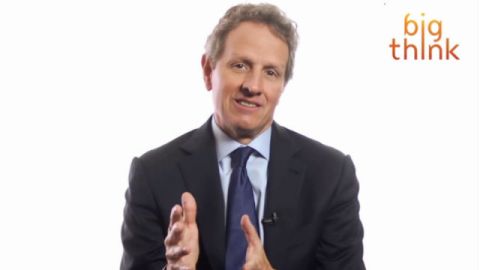Timothy Geithner: Don’t Lose the Memory of Panic

Do you remember when the sky was falling? The newspaper headlines were of epic proportions, announcing another financial institution in ruins, more staggering numbers of layoffs. As the 2008 economic asteroid hit, a beloved financial wizard by the name of Bernie Madoff was exposed, sending further shockwaves.
As much as we would like to forget the “08 crisis,” Timothy Geithner, the former U.S. Treasury Secretary, says that there are important reasons to think back on it now. In his memoir, Stress Test: Reflections on Financial Crisis, Geithner takes us behind the scenes of how he and other public servants worked tirelessly to avoid another Great Depression. The story he shares is a personal one—his childhood living abroad in Africa and Asia; cutting his teeth as a Treasury official during the international financial crisis of the 1990s, serving as president of the New York Federal Reserve during Wall Street’s last Gatsby-esque era—but his story is also an instruction manual for how to contain a financial disaster. (It could have been worse, much worse.) His book has essential insights on how to avoid an economic meltdown in the first place.
“Financial crises that are the most dangerous ones, they follow and they’re caused in effect by a long period of excess confidence where the power of the belief, for example, the house prices won’t fall. That it’s safe to lend a lot of money, take on a lot of risk, because there’s not much risk of recession,” Geithner told Big Think. “When you lose that memory of panic of the crisis that creates the seeds in some sense for the vulnerability. And that’s sort of the central cause of financial crisis.”
The “08 crisis” was caused by a lot of different factors, as Geithner is quick to point out. There was the predatory lending, a revolving door at the SEC that resulted in regulatory failure, and plenty of abuse and excess across the board. No one seemed to think that the party would ever end. “The most damaging thing was the power of that simple belief that because the world had been relatively stable, it would be stable in the future,” he says. “Severe [crises] happen pretty rarely. Again for the United States it wasn’t since the Great Depression. [We had] no living memory of that. And in some ways it’s when you lose the memory of it that you become more vulnerable to it.”
In this clip from Big Think’s interview, Geithner discusses decision-making in the darkness of a panic and how to stop a financial stampede headed off a cliff:




